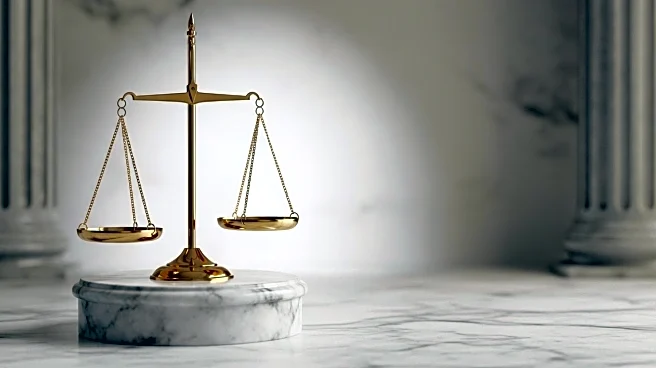What's Happening?
Justice Clarence Thomas has expressed a desire for the Supreme Court to critically reassess established precedents, suggesting that past decisions should not be treated as 'gospel.' During a speech at Catholic University’s Columbus School of Law, Thomas used a metaphor comparing the Court to passengers on a train, questioning the direction and leadership of the judicial process. He argued that some precedents were merely ideas that gained acceptance without substantial scrutiny. This comes as the Supreme Court prepares to start a new term, with cases on its docket that could challenge significant rulings such as Obergefell v. Hodges, which legalized same-sex marriage nationwide. Thomas's remarks highlight his long-standing interest in revisiting major decisions, especially with the Court's current conservative majority.
Why It's Important?
Justice Thomas's call to revisit Supreme Court precedents could have profound implications for U.S. legal and social landscapes. If the Court adopts his approach, it may lead to the overturning of landmark decisions, affecting rights related to marriage equality, abortion, and voting. This could result in significant shifts in public policy and societal norms, potentially reversing progress in civil rights and liberties. The conservative majority in the Court increases the likelihood of such changes, which could alter the balance of power between federal and state governments and impact millions of Americans. The potential for revisiting these precedents also raises concerns about the stability and predictability of U.S. law.
What's Next?
As the Supreme Court begins its new term, it will consider cases that could challenge existing precedents, including those related to same-sex marriage and voting rights. The Court's decisions in these cases will be closely watched by legal experts, policymakers, and civil rights advocates. Potential reactions from political leaders and civil society groups could include calls for legislative action to protect rights that may be threatened by judicial reversals. The broader public may also engage in debates about the role of the Supreme Court and the importance of maintaining legal continuity versus adapting to new societal values.
Beyond the Headlines
Justice Thomas's remarks underscore a deeper philosophical debate about the role of the Supreme Court in shaping U.S. law. His perspective challenges the principle of stare decisis, which emphasizes the importance of adhering to precedent to ensure legal consistency. This approach could lead to ethical and cultural shifts, as the Court's decisions influence public perception of justice and fairness. The potential for revisiting established laws may also prompt discussions about the balance between judicial independence and accountability, as well as the impact of political ideologies on legal interpretations.










